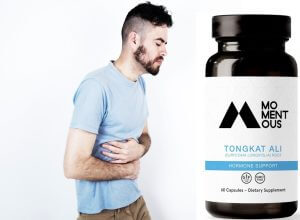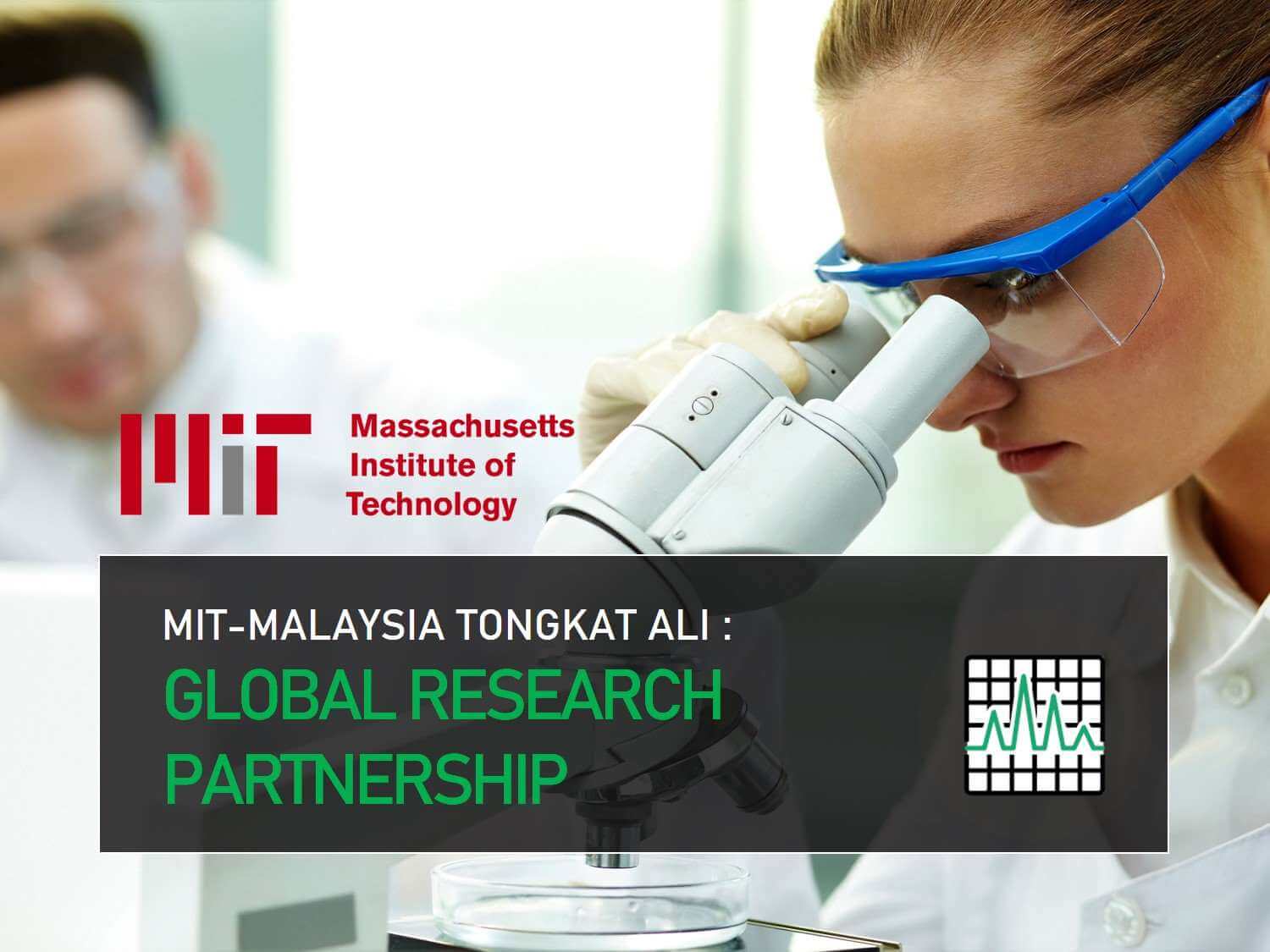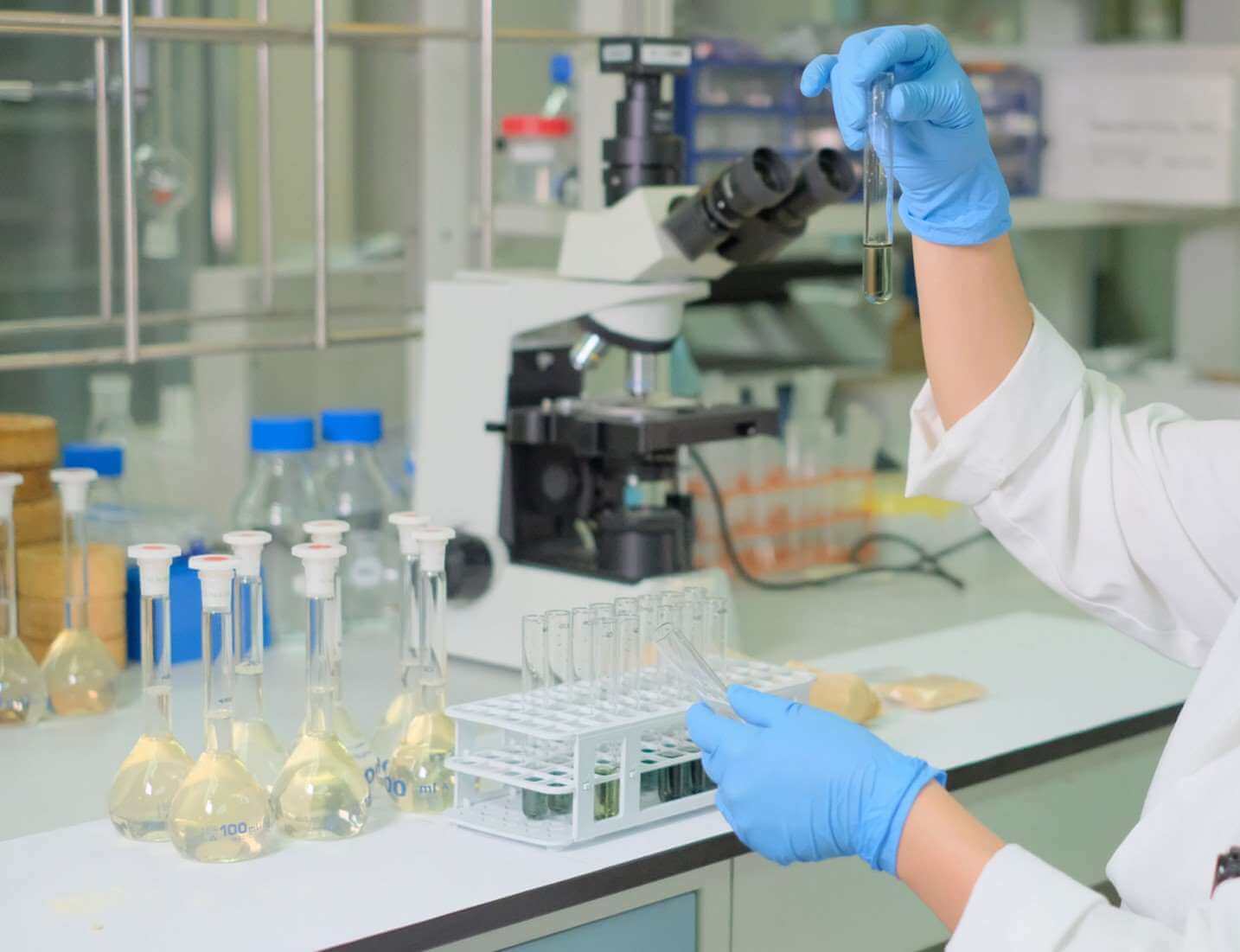

Fact: Malaysia has one of the best Tongkat Ali extraction and fingerprinting technologies in the world.
Malaysia’s strategic partnership with the Massachusetts Institute of Technology (MIT) under the Government-funded Malaysia-MIT Biotechnology Partnership Programme (MMBPP) has enabled millions of consumers to enjoy more health benefits from Tongkat Ali.
This article shares the development behind the best Tongkat Ali in the world, from Malaysia’s partnership with the Massachusetts Institute of Technology (MIT) to the technology for ID fingerprinting, and how the partnership transforms the market landscape of Tongkat Ali supplements.
Malaysia’s passion for Tongkat Ali is underpinned by its strong agricultural economy, centuries after its first documented use by botanist William Jack in 1822.
After a journal paper published by Harvard in 1950s, the Malaysia MIT Biotechnology Partnership Programme (MMBPP) was established later to commercialize the use of Tongkat Ali as a dietary supplement.
After decades of development and refinement, the global research effort was a resounding success. It has unlocked new technologies and scientific discoveries of Tongkat Ali. This has spurred more clinical trials being conducted to investigate Tongkat Ali’s wide range of use and potential health benefits, further boosting consumer confidence in recent years.
Positioned as the best country to source quality Tongkat Ali extract, Malaysia is the first country to set up a global Tongkat Ali R&D center under the leadership of former Prime Minister, Dr. Tun Mahathir Mohammed which later led to MIT-formulated Physta Tongkat Ali hot water extract.
The Malaysia-MIT partnership fosters the development of advanced fingerprint and extraction technologies by collaborating with the best scientists from two countries.
The Malaysia-MIT Tongkat Ali research partnership focuses on three core areas:
The MIT-Malaysia partnership on Tongkat Ali enabled the development of new biomanufacturing processes for production of biologic medicines including monoclonal antibodies, vaccines, viral vectors, and cell therapies.
In addition, the strategic partnership was timely to elevate a new standard in the herbal technology and to address industry issues as the natural supplement market is filled with adulterants and contaminants.
The MIT-formulated Tongkat Ali extract provides the next level of herbal extraction technology with refined craftsmanship that can only be accessible by discerning customers.
In fact, the Physta Tongkat Ali formulation was co-developed by MIT scientists in its early days and refined over time by Malaysian scientists with a series of human clinical studies and in-vitro studies with promising results.
According to industry observers and herbal experts, MIT Tongkat Ali is one of the best Tongkat Ali with hot water extract that is clinically proven to boost testosterone, libido and can be taken long term without side effects.


The Malaysia MIT Biotechnology Partnership Programme (MMBPP) is regarded one of the largest and amongst the first Tongkat Ali R&D centers in the world, involving more than 227 researchers, scientists and experts from various Malaysian institutions.
A total of 18 academic, industrial and government research institutions including six Biotechnology Cooperative Centers collaborate with the Massachusetts Institute of Technology (MIT) to develop the Malaysian Tongkat Ali through a five-year plan.
In fact, the MMBPP is approved as a national biotechnology programme by the National Research Council and sponsored by the Ministry of Science Technology and the Environment of Malaysia (MOSTI).
After more than 20 years, Malaysia continues to be the epicenter of Tongkat Ali research and development with hundreds of studies and tests being conducted on humans.
MIT’s collaboration with the Malaysian Government on Tongkat Ali research has spurred more than 300 clinical tests and research studies around the globe.
According to MIT scientists who were involved in the Tongkat Ali research, Malaysian Tongkat Ali is more superior than Indonesian Tongkat Ali due to high benchmark of quality standards, harvesting, fingerprint (ID) and extraction technologies that are backed by higher number of clinical tests.
Here are some achievements from MIT-Malaysia Tongkat Ali collaboration:
The MIT-Malaysia research team developed a genetic fingerprinting tool for Tongkat Ali known as Single Nucleotide Polymorphisms (SNP). SNPs are found in the DNA between genes and act as biological markers for harvesting quality Tongkat Ali plants in Malaysia.
The SNP technology developed by MIT scientists was used to predict the bioactive compounds in Tongkat Ali plants, making it highly sought after as the best Tongkat Ali extract in the world.
In addition, only handpicked mature Malaysian Tongkat Ali is used in the MIT Tongkat Ali extract due to the higher potency and wild harvesting technique that leverages on the strength of Malaysian natural ecosystem.
The Tongkat Ali Standards MS2409 published by the Department of Standards Malaysia (SIRIM) in 2011 was a result of multi-year research activities of the MIT-Malaysia Biotech Partnership which elevates the quality of Tongkat Ali in the world map.
The MIT Tongkat Ali uses the Malaysian Tongkat Ali standard MS2409, which sets a new global benchmark ensuring consumers are getting the optimal health benefits from consistent levels of high bioactive compounds such as eurycomanone, glycosaponin and polysaccharides for every batch of production. This makes MIT Tongkat Ali popular amongst herbalists and professionals searching for potent Tongkat Ali formulation that works.
According to various consumer feedback, Tongkat Ali supplements that comply to the Malaysian Standard MS2409 are believed to have higher quality Tongkat Ali root extract specifications and safety standards.
The joint MIT-Malaysia research has also given birth to Physta®, the world’s first standardized hot water Tongkat Ali extract that is offer higher bioavailability compared to traditional ethanol-based extract.
In fact, Physta (or later known as LJ100 in the US market) is often quoted as the MIT-formulated Tongkat Ali extract, best known for its potent quality and faster reaction time.
US-Patented Physta® Tongkat Ali extraction technology was co-developed, tested and refined by global scientists including MIT scientists in the early days in Malaysia, making it one of the potent Tongkat Ali formulations with high quality safety standards.
Hot-water Tongkat Ali extract is regarded by medical professionals and herbalists as safe and much more potent than ethanol-based extract.
The Malaysia-MIT Tongkat Ali biotechnology was led by Prof Anthony J Sinskey, who is the Faculty Director of MIT Center for Biomedical Innovation (CBI) and also the Co-Director of the Malaysia-MIT Biotechnology Partnership Programme (MMBPP).
Other scientists involved in the development of MIT-led Physta® Tongkat Ali include Professor ChoKyun Rha (MIT), T. G. Sambandan (MIT), Dr. Annie George (Biotropics Malaysia), Professor Katsuiku Hirokawa (Tokyo Medical University), Professor Ralf Henkel (University of Western Cape, South Africa), Dr. Shawn Talbott (American College of Sports Medicine, USA), and Jay Udani (Medicus Research LLC, USA).
The Malaysian Tongkat Ali remains the best in the market due to the advanced fingerprint SNP technology, standardization of Tongkat Ali processes and patented Tongkat Ali hot water extraction technology.
Most of these quality attributes are results of the research outcomes from the Malaysia-MIT Biotechnology Partnership Programme (MMBPP).
This makes Malaysian Tongkat Ali extracts such as MIT-formulated AKARALI Physta® amongst the best in the market, far more potent and safer for long term consumption.
In addition, there are more clinically tests being conducted on Malaysian Tongkat Ali extracts in the last 20 years compared to Indonesian Tongkat Ali.
Whilst many are not aware of the differences between Malaysian vs Indonesian Tongkat Ali, for discerning customers and avid readers, the winner remains crystal clear.
AKARALI® is MIT-formulated with Physta® standardized hot water extract sourced from 100% handpicked Tongkat Ali root. As reported by Men’s Journal, The New World Report and Portland Monthly, AKARALI is one of the best natural testosterone boosters for men with the highest record number of clinical trials and toxicology tests since 2003.
MIT Tongkat Ali is a prime example of a global Tongkat Ali commercialization effort between Malaysia and the USA, making it the best quality Tongkat Ali extract in the world.
There is no stone left unturned when it comes to quality production and research, and Malaysia remains the best country to source for clinically tested Tongkat Ali extract.
The MIT-Malaysia Biotech partnership is a testament of decades of commitment to transform and produce high-quality Tongkat Ali for global consumers. Rest assured MIT Tongkat Ali supplement such as AKARALI conforms to the Malaysian Tongkat Ali Standards, MS2409 along with GMP certifications, and 3rd party adulterant tests.
Access human clinical trials to learn how Tongkat Ali affects our health.

Naressa Khan contributes regularly on AKARALI and is part of the global Tongkat Ali research team. As a writer and journalist, Naressa specializes in nutrition, health supplements, and natural wellness. With this approach always in mind, she explores fact-based and scientific evidence of topics related to health, herbs and natural wellness.
Disclaimer: The content published in this article is for educational purposes and not intended to provide any form of recommendations, directly or indirectly to purchase or consume herbal supplements, drugs, medications, alternative remedies and practices or any brands mentioned in this article. By reading this, the sole responsibility and decision lies on the reader to make an informed decision based on publicly available information published on the internet. Any herbal supplements can be used as a health supplement, dietary plan or to treat illnesses. However, we encourage you to consult your nearest doctor before making any purchase from this website or any other websites or social platforms after reading this article. We do not hold any responsibility or accountability for any products purchased from this website or any third-party websites that are linked to this articles, sales channels or social platforms.